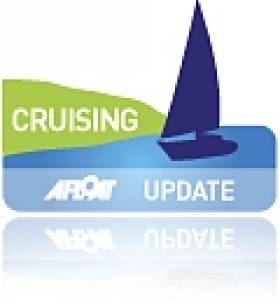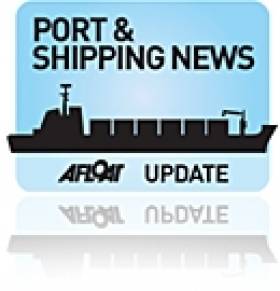Displaying items by tag: Somali
Cruising Association Shocked by Fatal Shootings
Scott Adam was a member of the Cruising Association and was taking part in the round-the-world Blue Water Rally.
The Cruising Association is Britain's leading organisation for cruising sailors with members worldwide and works closely with government and other agencies to represent the interests of cruising yachtsmen including combating the menace of piracy.
"Our thoughts are with the family and friends of those who died", the statement ended.
NATO Issue Guidelines to Prevent Piracy
The products tanker Ardmore Seafarer (2004 / 45,744 dwt ) which was at sea 1,000 (nm) nautical miles off Somalia and some 500 nm off the coast of India, came under the attack of pirates last year.
The 179m long vessel which is operated by the Cork based Ardmore Shipping Group managed to evade the attack and potential seizure of the vessel thanks to the decisive action of the ships master, Captain Benamu. For more information about the Irish based company here and for a picture of the vessel click this link.
Though, the fate to other commercial shipping, was less fortunate, when 23 vessels were attacked in the Arabian Sea alone, in January of this year. Five of those attacks have resulted in the ships being taken over and held by the pirates.
To combat this threat, NATO, the EU Naval Force (EUNAVFOR) and Coalition Maritime Force (CMF), together with warships from other nations, continue to operate in attempting to prevent pirate hijacks. Though not every vessel can be guaranteed a warship to intervene from the threat of pirates, due to the sheer size of the sea area, which is the equivalent to an area the size of western Europe.
On an annual basis, there are approximately 22,000 ship movements that transit the Gulf of Aden and many of these now use Best Management Practices (BMP).
Some of the guidelines set by the BMP is for a vessel to set a high speed through the area, the placing of barbed wire around the ship and the use of water cannons to ward off an imminent attack. Ships with a low freeboard and at a slow speed, and small vessels, such as yachts, are particularly vulnerable to pirate attack.
Since December 2008, NATO has contributed to the international counter piracy effort off the Horn of Africa. This requires protecting the ships providing UN and World Food Programme through Operation Allied Provider and in general merchant shipping traffic plying in the Gulf of Aden.
In addition to these activities, Operation Ocean Shield, NATO is working with other international bodies to help develop capacity of countries in the region to tackle piracy on their own.
Under the Standing NATO Maritime Group 2 which is permanently assigned to NATO. This is a multi-national naval group formed through the NATO Alliance that provides a stand-alone task force with the ability to quickly respond to crisis situations anywhere in the world.
The current commander of NATO Maritime Group 2 is Commodore Michiel B. Hijmans of the Royal Netherlands Navy. The fleet consists of the Dutch HNLMS De Ruyter (the 'flagship' of the international fleet), HDMS Esbern Snare (Denmark), USS Bainbridge and USS Laboon (USA) and TCG Giresun from the Turkish Navy.
NATO is to continue operating their counter-piracy measures by extending Operation Ocean Shield to December 2012. To read more about the pirate attacks, the Best Management Practices and general advice for vessels logon to the NATO Shipping Centre www.shipping.nato.int






























































